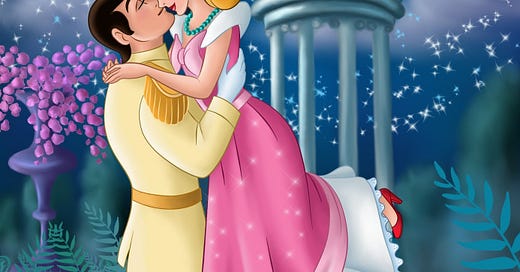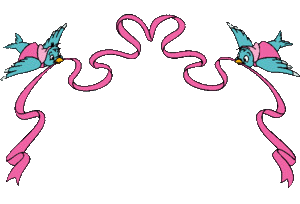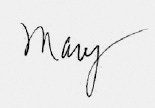Come in the middle? Here’re links to ➡️ Chapter One, Chapter 2, Chapter 3, Chapter 4, Chapter 5, Chapter 6, Chapter 7, Chapter 8, Chapter 9 , Chapter 10, Chapter 11, Chapter 12, Chapter 13, Chapter 14 , Chapter 15 , Chapter 16
Cinderella
Nietzsche says, Deep yellow and hot red: thus my taste wants it; it mixes blood into all colors. But whosoever whitewashes his house betrays a whitewashed soul to me.
Blood runs red in “Cinderella”: “No one shall be my wife but she whose foot this golden slipper fits.” When the shoe will not fit the eldest stepsister, her mother gave her a knife and said, “Cut the toe off; when you are Queen you will have no more need to go on foot.”
And the blood trickles from her foot and her sister’s, also cut to fit the slipper.
Cinderella has lost her father to her evil stepmother: Her father does not protect her.
I find the psychiatrist on Match.com. I find a man who, I don’t realize, strikingly resembles my father. My daughter points this out to me on meeting him, one month after he and I have met.
In the e-mail exchanges to arrange our blind date—Internet dates are blind, despite the posted photo—he offers to cook dinner for me. I refuse and he is gracious. We
meet at Bistro D’Oc: the restaurant is close to me and feels safe. I see him on 10th Street waiting: The angle of his nose, the length of his face—a large gentle face—his height, more than six feet, his thinness. We kiss on meeting. A quick but decisive kiss on the mouth. He orders a bottle of Croze-Hermitage Syrah at dinner. He comes around the table at the end of dinner and kisses me.
I swoon.
I send him the sonnet in Act I of Romeo and Juliet before their first kiss (rhyming as all Shakespeare’s sonnets do in this manner: abab, cdcd, efef, gg):
Rom. [To Juliet] If I profane with my unworthiest hand
This holy shrine, the gentle sin is this,
My lips, two blushing pilgrims, ready stand
To smooth that rough touch with a tender kiss.
Jul. Good pilgrim, you do wrong your hand too much
Which mannerly devotion shows in this.
For saints have hands that pilgrims’ hands do touch,
And palm to palm is holy palmers’ kiss.
Rom. Have not saints lips, and holy palmers too?
Jul. Ay, pilgrim, lips that they must use in prayer.
Rom. Oh then, dear saint, let lips do what hands do.
They pray. Grant thou, lest faith turn to despair.
Jul. Saints do not move, though grant for prayers’ sake.
Rom. Then move not while my prayer’s effect I take.
Thus, from my lips by thine my sin is purged. [Kissing her]
My father celebrated his birthday in my youth on August 12 before he learned when I was grown—a search for his birth certificate—that he was born on July 28. D. is born August 2. The psychiatrist’s birthday is within one day of August 12.
I swoon.
He does not whitewash his house, his soul: He tells me that, while in training, he took a medical student’s Rorschach test that revealed he was psychotic. He tells me he’s been accused of violence, unfairly jailed, a restraining order. He has been married four times, is in the process of divorcing his fourth wife. He is a psychiatrist who has never been analyzed because, he says, he did not need to be analyzed.
I send W.H. Auden:
At last the secret is out, as it always must come in the end,
The delicious story is ripe to tell to the intimate friend;
. . .
There is always another story, there is more than meets the eye.
. . .
There is always a wicked secret, a private reason for this.
I’ve lived with Oh-So-Greta-Garbo: “I need to be alone,” he said, and then he left with all his secrets.
The psychiatrist writes me: “You take my breath away, and return it refreshed. You breathe from my mouth, from my chest so as to restore life that could have died from a too-early birth.”
I send Wallace Stevens:
His self and the sun were one
And his poems, although makings of his self
Were no less makings of the sun.
He goes to his house in Florida to plant roses. I read Rilke, who is said to have died from the prick of a rose thorn and the leukemia that it revealed when the wound would not heal:
The Bowl of Roses
. . . But now you know how to forget such things,
for now before you stands the bowl of roses,
unforgettable and wholly filled
with attainable being and promise,
a gift beyond anyone’s giving, a presence
that might be ours and our perfection.
He writes me from Florida:
“He sits in the restaurant across from the Aztec princess, pretending he’s in a Chinese buffet in Sarasota, pretending he doesn’t have tears in his eyes sine die, pretending he doesn’t see his fate and that he doesn't know his future.
“He pretends that he doesn’t say to her that he realizes he has no cure for any of the many of them, and not even that he wasn’t put on Earth to be a healer-priest. He does realize that he doesn’t have to cure any of it, that it shall be more than sufficient to be with all of them as with himself at the scene and at the time, to touch, to be inside her. He knows she knows. He falls into the Charlie Chan pit as they press the button that upends his bench but he’s still there, and the Aztec princess now has the bronze knife in her hand.
“He has a moment of dread, then pretends he doesn’t, and then he doesn’t. He doesn’t have to pretend: he knows that it isn’t trust if it’s safe. So he kisses her, and he doesn’t have to pretend about that, nor that she doesn’t kiss him back.
“Then she picks up the knife again, gently cuts the buttons from his shirt. Eyes touch. She plunges the knife into his chest. Blood all over, and she holds his pulsing slippery heart in her hands, raises it to her mouth to make him immortal, bites deeply. His blood drips from her chin, the owner approves of her appetite: a fine cassoulet he is.
“He doesn’t have to pretend that it doesn’t hurt, that he has no fear.
“Je comprend. Et alors, je t’aime en plus.”
I am frightened. But he explains. He has read my story “Sine Die” that appears in my book The Woman Who Never Cooked. He responds to the story. I have misunderstood.
I have had one dinner date with him at Bistro D’Oc and known him five days. I eat strings beans Szechuan at Eat First on H Street. On the Chinese calendar I am the dog, he is the snake. “Beware the snake,” the Chinese placemat tells me from the table.
But he has read me: “Sine Die” with all its triangles and figures.
The man I loved read all my work. When the galley proofs arrived for the book, the man I loved kissed my friend while I washed dishes in the kitchen.
I believe that paradox is the struggle of existence, that love absolves paradox, however briefly. I believe in the numinous quality of existence.
How do we know what we are seeing?
What you are perceiving about me seems bifurcated. You think you know the story. What you are seeing is the paradox of my needs and yours.
No one can provide anyone else perfect safety. But two people may provide moments of perfection that build on one another and that give them a sense of connection in the world, the sense, the belief that “again” will occur, with all the risks of existence, with all the changeable nature of the all too human.
We are blind when we believe we know the other’s story.
Cinderella wishes: A bird, not a fairy godmother, comes to Cinderella’s tree that grew from the water of her tears on the grave of her mother.
Her stepsisters are punished with blindness all their days.
How to see the other’s story? That is the question. And the answer is, as Nietzsche says, Whoever would become light and a bird . . .
Grateful acknowledgment is made to the following for permission to reprint previously published material in chapter 17: Wallace Stevens: Excerpt from "The Planet on the Table", from The Collected Poems of Wallace Stevens by Wallace Stevens, copyright 1954 by Wallace Stevens and renewed by Holly Stevens. Used by permission of Alfred A. Knopf, a division of Random House, Inc.
W.H. Auden: Excerpt from W.H. Auden, "Twelve Songs", copyright 1937 and renewed 1965 by W.H. Auden, from Collected Poems of W.H. Auden by W.H. Auden. Used by permission of Random House, Inc., and the Wylie Agency for the estate of W.H. Auden.
Coming next: Chapter 18: “Something Old for Something New” Table of Contents
Know that you’re help for me to keep writing means everything to me and so I offer this:
Love,








"No one can provide anyone else perfect safety. But two people may provide moments of perfection that build on one another and that give them a sense of connection in the world, the sense, the belief that “again” will occur, with all the risks of existence, with all the changeable nature of the all too human."
great stuff right there
"We are blind when we believe we know the other’s story." - this line really hit me in the feels, Mary. It is such a profound truth and requires a great deal of humility to acknowledge how little we really know of others.